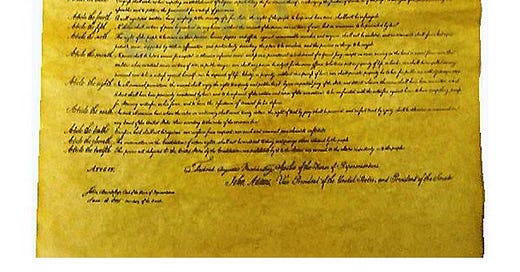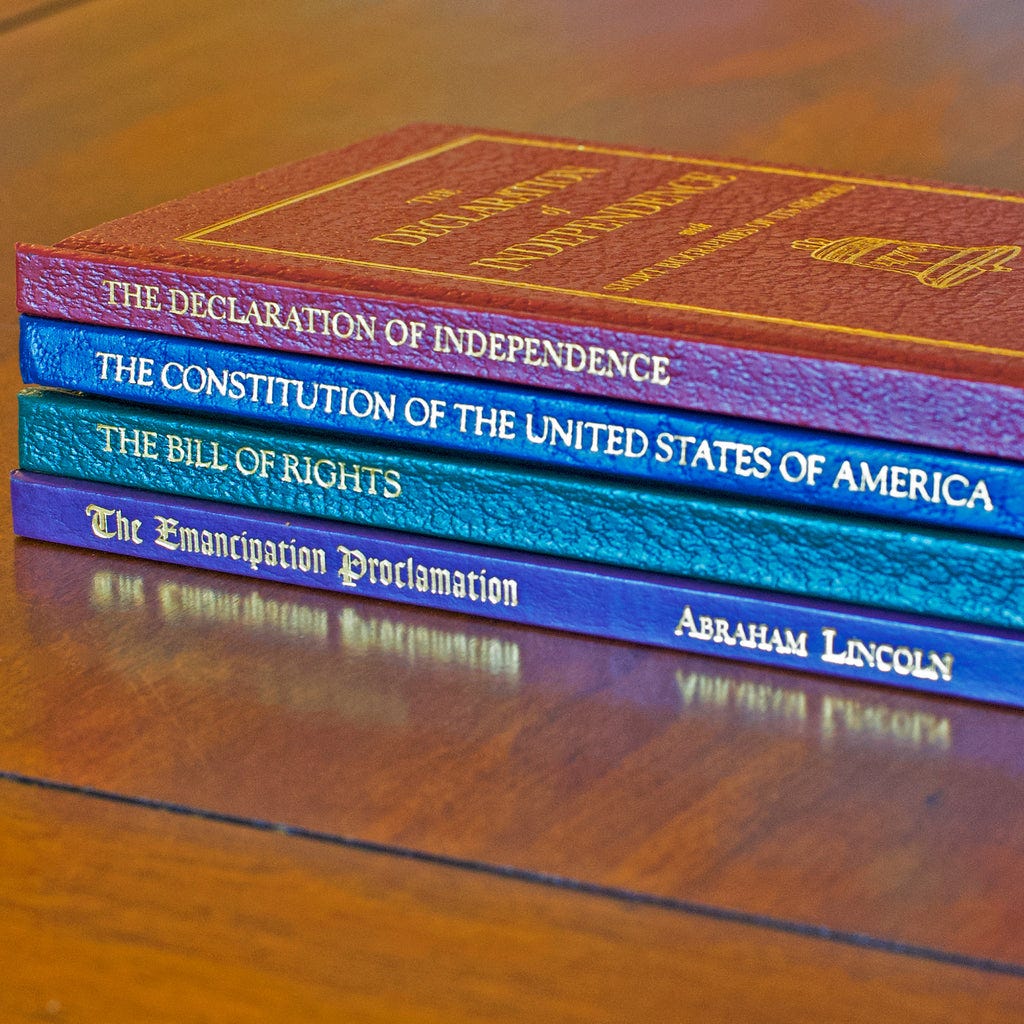#8: CIVICS 101: The Constitution
Q&A #8: What are the rights enumerated in the Bill of Rights?
Our American Government
Our American Government is a small book published by the House of Representatives for citizens and those who seek a greater understanding of the American interpretation of democracy. It follows a question-and-answer format and covers a broad range of topics dealing with the three branches of our Government, the electoral process, and the role of political parties.
The Savvy Citizen is reproducing the 169 questions-and-answers through a series of posts called Civics 101. Each post will contain the Q&A as well as some additional commentary to add historical context, fun facts, or anything we believe will add to our collective understanding of these topics.
Think of it as your adult Civics class, but without the test!
Let’s keep at it.
SECTION: The Constitution
Q&A #8: What are the rights enumerated in the Bill of Rights?
Right to freedom of religion, speech, and press (Amendment I);
Right to assemble peaceably, and to petition the Government for a redress of grievances (Amendment I);
Right to keep and bear arms in common defense (Amendment II);
Right not to have soldiers quartered in one’s home in peacetime without the consent of the owner, nor in time of war except as prescribed by law (Amendment III);
Right to be secure against “unreasonable searches and seizures” (Amendment IV);
Right in general not to be held to answer criminal charges except upon indictment by a grand jury (Amendment V);
Right not to be put twice in jeopardy for the same offense (Amendment V);
Right not to be compelled to be a witness against oneself in a criminal case (Amendment V);
Right not to be deprived of life, liberty, or property without due process of law (Amendment V);
Right to just compensation for private property taken for public use (Amendment V);
Right in criminal prosecution to a speedy and public trial by an impartial jury, to be informed of the charges, to be confronted with witnesses, to have a compulsory process for calling witnesses in defense of the accused, and to have legal counsel (Amendment VI);
Right to a jury trial in suits at common law involving over $20 (Amendment VII);
Right not to have excessive bail required, nor excessive fines imposed, nor cruel an unusual punishments inflicted (Amendment VIII).
My Thoughts
When the Bill of Rights was initially ratified in 1791, it only applied to the federal government and federal court cases since each state had its own Constitution and courts. This meant that if a state government infringed a citizen’s right to free speech, the citizen would need to seek redress from the state pursuant to the state’s constitution, as opposed to the federal government in accordance with the U.S. Constitution.
Over time, most of the amendments in the Bill of Rights have been made applicable to the states, in whole or in part, through various judicial decisions and via the 14th Amendment’s Due Process Clause. The Third, Seventh, Ninth, and Tenth Amendments have not been incorporated at all.
—
Back tomorrow with Q&A #9: How may the Constitution be amended?
Meanwhile, don’t forget that we’re organizing the post links on a single page available here.
xo,
Kelley for the Savvy Citizen Team
October 16, 2024






